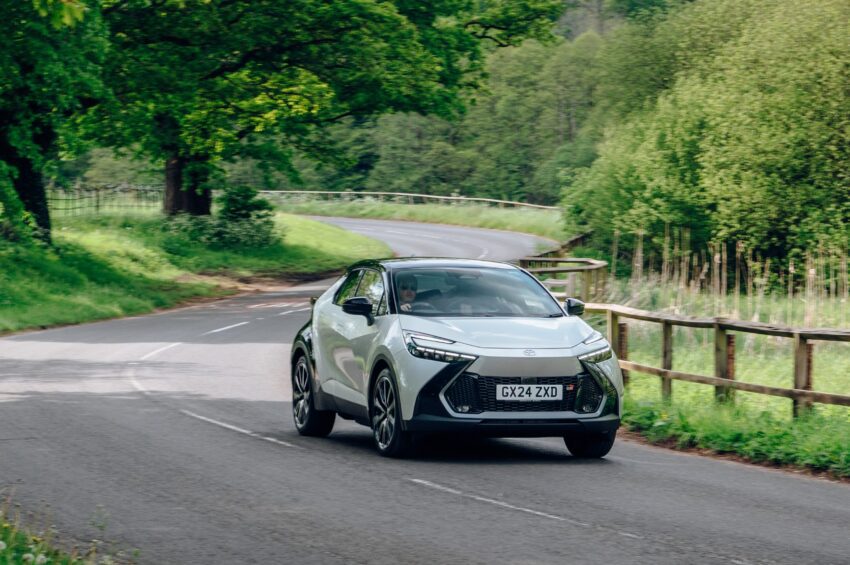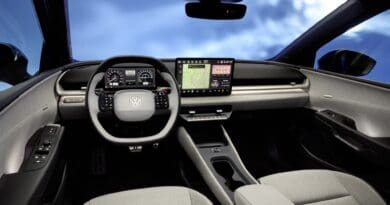
Toyota C-HR PHEV review
With an all-new and all-electric version on the way, does the Toyota C-HR plug-in hybrid still have a place in the Japanese brand’s line-up?
Toyota recently confirmed that later this year we’ll see an all-electric version of the C-HR crossover, called the C-HR+.
That will sit between the bZ4X and Urban Cruiser and, while it shares a name, it’s an entirely different vehicle from the existing C-HR hybrid that’s proved such a hit for the brand.
While Toyota’s roll-out of all-electric vehicles is accelerating, the marque is still hedging its bets with hybrid, arguing that different markets have different needs. But with the UK further along the path than other regions, does the plug-in variant of the current C-HR still have a place in Toyota’s wider electrification plans?
Design, interior and technology
The second generation C-HR’s design picks up where the first-gen left off and embraces sharp angles and dramatic lines. And it’s all the better for it. The aggressive angles, short overhangs and wide stance give the C-HR real road presence – not something that’s always been true of Toyotas.
Inside, things are less dramatic. While the original C-HR’s cabin was utterly unique, the current model feels far more like any number of other Toyotas. From a quality perspective that’s a good thing. Like every Toyota the materials are solid and hard-wearing (and sustainable too) and the build quality is beyond reproach. And it’s user friendly too. There’s a big clear 12.3-inch infotainment screen running a much-improved operating system. And, praise by, Toyota has kept physical controls for the air conditioning system in a neat slim panel on the centre console. However, apart from the cabin-wide ambient lighting strip and ‘wings’ that run from dash to door top, it’s a little plain.

At 4.36m long, the C-HR is a little shorter than the rival Kia Niro PHEV and about the same size as the plugless Mazda CX-30 and Seat Ateca. Interior space is good up front but the rear seats still feel best-suited to youthful passengers, with rival cars feeling bigger in the back. The plug-in also loses a chunk of boot space compared with the regular hybrid and is down on the Kia and the Hyundai Kona HEV, offering just 310 litres.
Powertrain
The C-HR PHEV uses the 2.0-litre four-cylinder petrol engine from the regular hybrid model and adds a far more powerful electric motor to the front axle, powered by a generous 13.6kWh battery.
Toyota says that provides up to 41 miles of all-electric driving – more than the average daily drive for most UK motorists. That means, in theory, with regular charging you could rarely have to dip into your fuel reserves. There are various drive modes to help with this and, cleverly, the PHEV features predictive geofencing which can help optimise battery usage and storage to ensure electric running in low emissions zones.
However, thanks to the 161bhp put out by the electric motor, you’re not restricted to low-speed pootling to enjoy the EV drive. It will provide enough punch to get up to motorway speeds, if you’re very careful with the throttle.
When the petrol engine does kick in it can be pretty obvious, especially after the impressive silence in EV running. A heavy right foot prompts a noticeable booming noise from the engine bay but at part throttle it settles down and the oft-complained-about CVT drone of hybrids has largely been eliminated.
The noise is the biggest clue to the shift between power sources, otherwise the transmission does a great job of smoothing out the transition from electric to petrol – not something all PHEVs manage.

Combined, the electric and petrol motors provide 220bhp and make for decent but not dramatic performance. The 0-62mph run takes 7.4 seconds and at full-throttle there isn’t huge amounts of shove, but there’s sufficiently strong pick-up at mid-throttle to suit most driving situations.
The handling ties nicely into that. The C-HR isn’t the last word in driving dynamics but copes well with everyday situations. It’s composed and responsive on the road but the steering is too numb to offer much ‘fun’. Where it wins out is with a surprisingly supple ride for its class, isolating you from the road nicely thanks to frequency sensitive damping developed specifically for the plug-in model.
Toyota C-HR PHEV price and specifications
The C-HR PHEV comes in three simple trim levels – Design, Excel and GR Sport – with prices starting at £39,145 and rising to £44,545.
There aren’t a huge number of plug-in rivals in the Toyota’s class, but that pricing does put it at around £4,000 more than its natural rival the Kia Niro.
All versions come with alloy wheels, full LED lights, bi-tone paint and privacy glass, along with a powered tailgate and keyless entry. The two 12.3-inch digital screens are standard, along with dual-zone climate control, heated seats and steering wheel, a reversing camera and adaptive cruise control as well as the Toyota Safety Sense ADAS package.
GR Sport adds 20-inch wheels, specific sport GR-inspired trim, a JBL stereo, extended bi-tone rear finish, head-up display and power-adjustable seats but loses the panoramic sunroof of the Excel grade.
Verdict
If the inbound C-HR+ delivers on its on-paper promise, it has the potential to eclipse much of the PHEV version’s appeal, offering range, space and technology to surpass the hybrid’s and to meet most driver’s everyday needs.
That said, for people who can’t charge at home, plug-in hybrids still offer an alternative path to cut their emissions and fuel use without being reliant on an expensive and sometimes patchy public charging network.
And within those terms, the latest C-HR PHEV is a solid choice. It looks brilliant, offers decent performance and, if driven sensibly, a usable all-electric range. It’s pricier than some rivals but comes generously equipped and with Toyota’s rock-solid reputation for reliability.

Toyota C-HR PHEV GR Sport
- Price: £44,545
- Powertrain: 2.0-litre, four-cylinder, petrol, electric motor, FWD
- Battery: 13.6kWh
- Power: 220bhp
- Torque: N/A
- Top speed: 112mph
- 0-62mph: 7.4 seconds
- EV range: 41 miles
- Consumption: 353mpg
- Charging: 7kW





